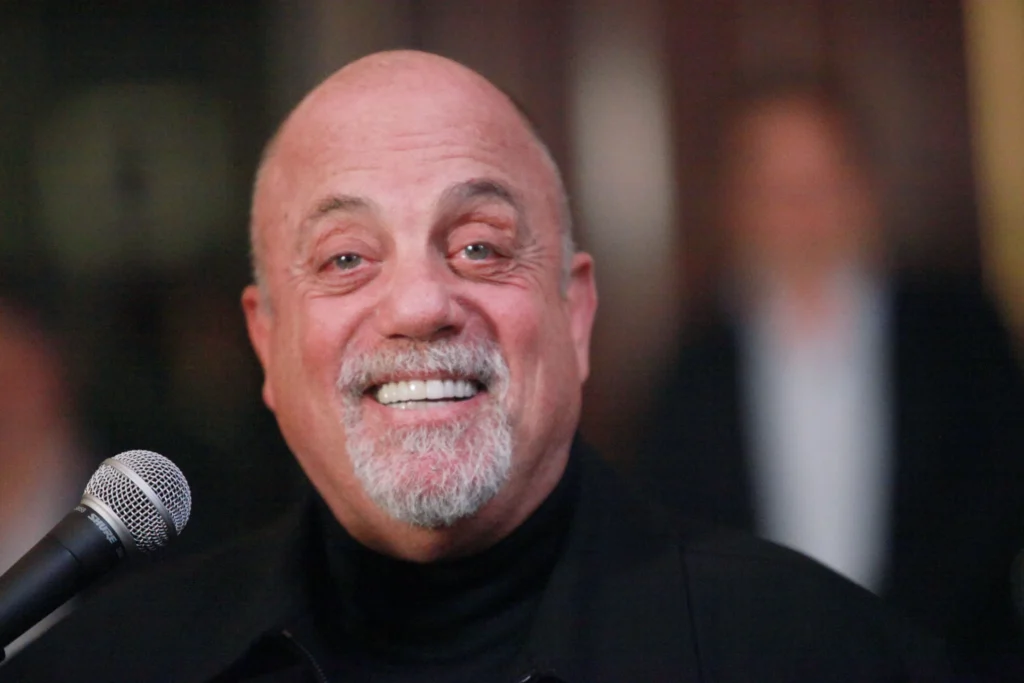Billy Joel Diagnosed with Normal Pressure Hydrocephalus: What It Means for His Health and Tour
Music icon Billy Joel has revealed his diagnosis of normal pressure hydrocephalus (NPH), a rare brain disorder affecting his health. The announcement has shocked fans worldwide, as Joel also shared the news of canceling his remaining tour dates with Stevie Nicks. This decision underscores the severity of his condition and its impact on his legendary music career.
What is Normal Pressure Hydrocephalus (NPH)?
Normal pressure hydrocephalus, or NPH, is a neurological condition caused by an abnormal buildup of cerebrospinal fluid (CSF) in the brain’s ventricles. Unlike other forms of hydrocephalus, NPH does not always cause a noticeable increase in intracranial pressure, which can make it harder to diagnose.
This disorder primarily affects adults over the age of 60. It can often be mistaken for other age-related conditions like Alzheimer’s or Parkinson’s disease. The symptoms overlap significantly, leading to delays in proper diagnosis and treatment.
The condition is treatable, but early detection is critical. Without treatment, NPH can lead to a significant decline in cognitive and physical abilities. For celebrities like Billy Joel, the implications are even more profound, as the condition directly impacts his ability to perform and connect with his audience.
Key Symptoms of NPH
NPH presents with a classic triad of symptoms: difficulty walking, urinary incontinence, and cognitive decline. These symptoms often develop gradually, making them harder to notice at first.
Difficulty walking is usually the earliest and most noticeable sign. It may appear as a shuffling gait or general instability. Many people with NPH report feeling as though their feet are “glued to the floor.”
Cognitive challenges can range from mild memory lapses to more severe confusion. These issues are often mistaken for dementia, delaying proper diagnosis. Urinary incontinence, while less prominent, can be a distressing symptom that further impacts quality of life.
How is NPH Diagnosed?
Diagnosing NPH involves a combination of clinical evaluations, imaging studies, and specialized tests. Physicians often use brain MRI or CT scans to identify the characteristic ventricle enlargement caused by excess fluid.
A lumbar puncture, or spinal tap, can also help confirm the diagnosis. This procedure involves removing a small amount of cerebrospinal fluid to see if symptoms temporarily improve. If they do, it strongly suggests NPH as the underlying cause.
In Billy Joel’s case, his diagnosis followed a period of worsening symptoms, including challenges with balance and coordination. Early intervention allowed his medical team to take steps toward managing the condition effectively.
Billy Joel’s Health Journey and Decision to Cancel His Tour
Billy Joel, known as the “Piano Man,” has captivated audiences for decades with his timeless music. However, his recent health struggles have forced him to prioritize his well-being over his career. Diagnosed at the age of 76, Joel is now focusing on treatment and recovery.
Joel had been touring alongside Stevie Nicks, another music legend, in what fans hailed as a dream collaboration. The duo had planned a series of concerts across major cities, with tickets selling out within hours. Unfortunately, Joel’s health concerns led to the difficult decision to cancel the remaining dates.
In a heartfelt statement, Joel expressed gratitude to his fans for their understanding. He emphasized that his decision was necessary to ensure he could focus on managing his condition and maintaining his quality of life.
Impact on Fans and the Music Industry
The cancellation of Joel’s tour has left fans disappointed but supportive. Many took to social media to express their concern for his health and to share messages of encouragement.
For the music industry, Joel’s absence marks the end of an era. His contributions have shaped generations of artists and fans alike. While his diagnosis is a personal challenge, it also serves as a reminder of the importance of health awareness, even for larger-than-life figures.
Stevie Nicks, Joel’s tour partner, has also shared her support. In a recent interview, she praised Joel’s courage and wished him a full recovery. The duo’s camaraderie remains an inspiration to their fans.
What’s Next for Billy Joel?
As Joel begins his journey with treatment, the focus will likely be on managing his symptoms and improving his quality of life. Treatment for NPH often involves a surgical procedure called ventriculoperitoneal (VP) shunting. This procedure involves inserting a thin tube to drain excess cerebrospinal fluid from the brain to another part of the body.
While VP shunting is effective for many, the recovery process can take time. Joel’s medical team will monitor his progress closely to ensure the best possible outcome. Fans remain hopeful that he will eventually return to the stage, even if only for select performances.
In the meantime, Joel’s story has brought attention to NPH, a condition that often goes undiagnosed or misunderstood. His openness about his diagnosis may encourage others to seek medical advice for similar symptoms, potentially improving outcomes for countless individuals.
Conclusion
Billy Joel’s diagnosis of normal pressure hydrocephalus has reshaped his life and career. While the news is undoubtedly challenging, it has also highlighted the importance of health awareness and early intervention. As Joel focuses on his recovery, fans and peers alike continue to rally around him with unwavering support.
His legacy as a music legend remains intact, and his courage in the face of adversity serves as an inspiration to many. For now, Billy Joel’s health takes center stage, reminding us all of the value of prioritizing well-being above all else.

